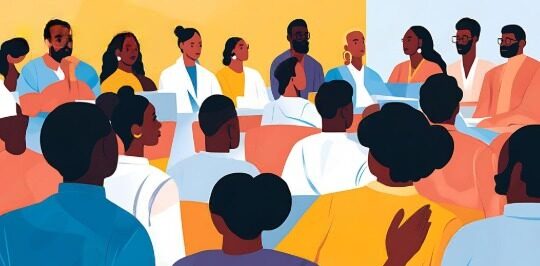By Alex Maina
On August 27th, people from Kiplombe Ward came together for an important public Participation meeting. These meetings are meant to give everyone in the community a chance to speak and share ideas about local projects and issues. But what happened that day left many feeling ignored and left out.
From the beginning, it was clear that the meeting was not going to be fair. Most of the talking was done in the local language spoken by the main community in the area. But Kiplombe is a diverse ward, home to people from many communities. Using only one language was not right and was unfair to others.
Many residents sat quietly. They could not understand what was being said. Some tried to ask questions, but the discussion continued in a language they didnŌĆÖt speak. This was supposed to be a government meeting one that brought people together. Instead, it pushed some away.
Worse still, leaders and officials present did nothing to correct the situation. They didnŌĆÖt insist on using Kiswahili or English the two official languages of Kenya as required by Article 7(1) of the Constitution. In fact, Article 7(3)(b) goes further to say that the State must promote the use of these languages for official communication. This means that in any public government forum, people should be able to understand and be understood.
This poor handling sent a strong message: that some voices mattered more than others. But that goes against Article 10(2)(a) of the Constitution, which lists public participation as a national value and principle of governance. It means that in everything the government does including public meetings people must be involved and heard. Article 174(c) also supports this by stating that devolution should give power to the people to make decisions about local matters. This only works if everyone can take part equally not just those who understand the language being used.
ThereŌĆÖs nothing wrong with using local languages when appropriate. But in a public forum with many communities, leaders must use a language everyone understands. If translation is needed, it should be arranged before the meeting starts.
Kiplombe deserves better. Every person, no matter their tribe or language, has the right to be heard, respected, and included. Public meetings should unite us not divide us. If we truly believe in fairness and democracy, then we must act like it especially in spaces where every voice is supposed to count.






